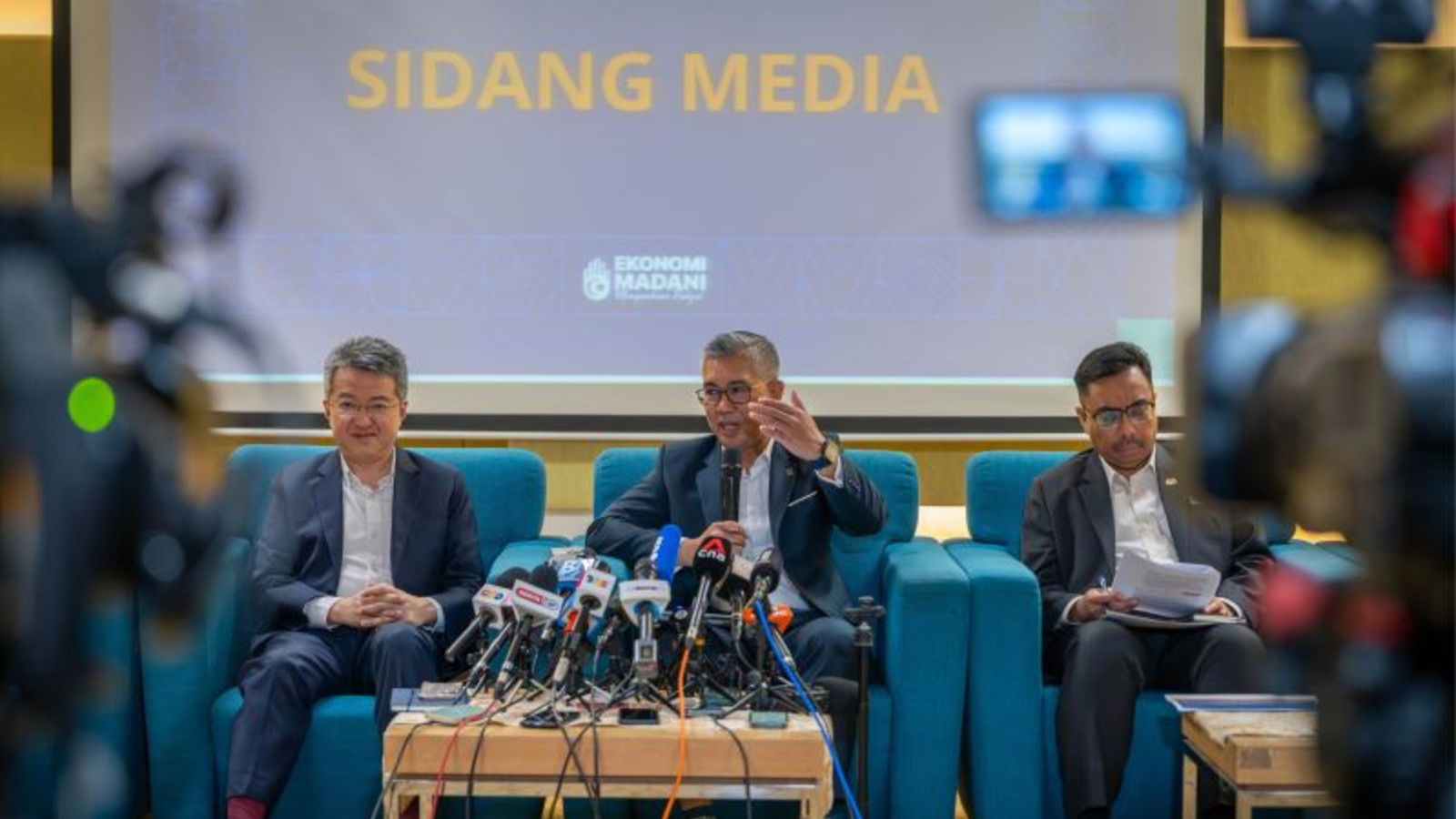share on
While the country’s projected GDP growth will be reviewed, the Government remains optimistic: "Our household spending is resilient; the country's domestic investment is strong; tourism revenue is strong," said MITI Minister Tengku Zafrul Aziz.
In a media conference on 7 April 2025, Tengku Dato’ Sri Zafrul Tengku Abdul Aziz, Malaysia’s Minister of Investment, Trade and Industry (MITI), addressed the country’s position on the recent US tariff imposition on Malaysian exports.
He clarified: "Malaysia aims to continue being a reliable trading partner, open to trade and investments, while valuing all economic partnerships, including our ties with traditional partners like the US and China."
The Minister firmly denied claims that Malaysia had imposed a 47% tariff on US imports, calling the claim inaccurate.
"We sought clarification on it from the US Ambassador and his team this morning. This inaccurate basis for calculation has resulted in Malaysia being imposed a retaliatory tariff of 24%," he explained.
No retaliation, but long-term focus on market access and jobs
For now, he shared, Malaysia will not take retaliatory action. Instead, it is focusing on securing a favourable outcome that preserves market access, encourages foreign investment, and protects the wellbeing of Malaysian workers and businesses.
While the country’s projected GDP growth of 4.5–5.5% for 2025 will be reviewed, the Government remains optimistic: “Our household spending is resilient; the country's domestic investment is strong; tourism revenue is strong."
Government measures to mitigate impact
To address the challenges posed by the tariffs, the Government has rolled out several strategic steps:
- Activation of the National Geoeconomic Command Centre (NGCC): MITI is conducting sectoral studies on key export impacts, which will be reviewed by the NGCC in upcoming meetings.
- Task force on managing US tariffs: This newly formed task force includes private sector representatives and aims to collect stakeholder input and explore ways to minimise the impact on trade and investment. On top of that, MITI will meet with industry chambers, export associations, and relevant ministries such as the Ministry of Finance, Ministry of Economy, Bank Negara Malaysia, Malaysia External Trade Development Corporation (MATRADE), Malaysian Investment Development Authority (MIDA), and the Department of Statistics Malaysia (DOSM).
- Special ASEAN Economic Ministers’ Meeting: This meeting will be held on 10 April to coordinate a response and manage potential disruptions to regional trade, supply chain networks, and cross-border investments.
- Ongoing engagement with the US: Strategic negotiations will continue via the Malaysia-US Trade and Investment Framework Agreement (TIFA). Discussions are also underway on a tech safeguard agreement, especially to protect Malaysia’s semiconductor and aerospace exports.
- Diversification of export markets: Through MATRADE, Malaysia has been expanding its export reach into the Middle East, Africa, and South America, with initiatives such as Malaysia International Halal Showcase (MIHAS) playing a key role.
- Free trade agreements (FTAs): Malaysia is stepping up efforts to use its existing FTAs more effectively. New and ongoing agreements include:
- Comprehensive Economic Partnership Agreement (CEPA) with the UAE, signed in January 2025
- Resumed FTA negotiations with the EU
- FTA negotiations with South Korea
- Upgrades to ASEAN Trade in Goods Agreement (ATIGA), and other ASEAN FTAs, including with China and India
- Negotiations on the Malaysia-European Free Trade Association (EFTA)
Short-term exemptions but long-term concerns
While critical sectors such as critical mineral, pharmaceuticals, semiconductors, certain energy related products are temporarily exempted, many industries such as machinery, equipment, rubber, plastics, and furniture could be affected by the tariffs.
Malaysia, one of the US’s largest ASEAN trading partners, is expected to experience broad-based challenges, including reduced demand and potential job impacts in export-reliant sectors.
The Minister acknowledged that Malaysia’s 24% tariff is considered moderate compared to other countries — For instance, Cambodia (49%), Laos (48%), Vietnam (46%), Myanmar (44%), Thailand (36%), Indonesia (32%), and China (34%). Nonetheless, he warned: "Should many countries retaliate, the global economic fallout of a worldwide trade war will be very serious."
On that note, several investors are still assessing the situation., with some slowing down their business expansion and shifting focus to markets such as China, India, and ASEAN.
Closing his remarks Tengku Zafrul called on industry chambers and associations to work with MITI.
"In any event, I would like to reassure the industry that MITI will do its utmost to ensure that Malaysia's interests are always protected. What is important is the wellbeing of the people and our business/export sector."
share on
Follow us on Telegram and on Instagram @humanresourcesonline for all the latest HR and manpower news from around the region!
Related topics


